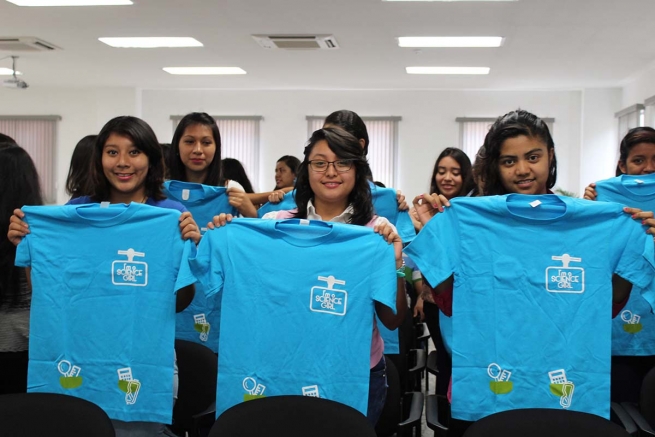EL SALVADOR: Annual Science Camp for Girls Launches with 30 New Students Interested in STEM Education

(MissionNewswire) In June, the Salesian-run Don Bosco University, located in San Salvador, launched its annual Science Camp for Girls. The camp was initially launched in 2013 and is supported through funding from the United States Agency for International Development (USAID). The goal is to provide opportunities for advanced education and employment for disadvantaged young women in El Salvador.
The university is one of the most prestigious institutions of higher education in the country, particularly in the technical and technological sector. In previous years, many of the science and technology programs were attended by men, but the university’s Program for Women in Science and Engineering (WISE Program) has encouraged more women to get into science, technology, engineering and mathematics (STEM) education.
This year, the initiative will change the lives of 30 young women who will be able to expand their horizons of opportunity in the science and technology fields. In addition, a new group of 14 teachers will receive this training. At the end of camp, 12 scholarships will be awarded for the students who wish to continue studying in technical-scientific university courses, enabling them to have more opportunities for future employment.
“The science camp is an opportunity for students to grow, not only in the field of science, but as a continuity of life and development. We want this experience to mean the discovery of their abilities and possibilities for them,” says Salesian Father Mario Rafael Olmos, rector of Don Bosco University.
Young women who have finished school, are convinced they can do well in the technical and science fields and are passionate about this study are encouraged to enter the program for higher learning. For some young women, their level of interest in these subjects was greatly enhanced by attending the camp. They saw a whole new field of study open to them that had previously not been considered.
To date, 143 young women in their last year of high school have participated in the camp. The lessons learned at the camp are practical and hands-on for the young students. In 2016, the camp also received a local award known as the “positive brand” recognition in the category of township living.
Don Bosco University has close to 6,000 students at the school, which also maintains a strong link to the local employment sector through research, technology transfer programs, continuing education courses and consultancy services. Degree programs are offered in engineering, social sciences, humanities, economics, technology and aeronautics, among others.
El Salvador is one of the most violent countries in Central America along with Honduras and Guatemala. The murder rate in El Salvador rose more than 44 percent in the beginning months of 2014 when compared to the same time in 2013. Gang violence is a leading cause of violence in the country and it’s estimated that some 60,000 young people have gang affiliation. Gang involvement often offers a sense of belonging and family that counters the lack of education and employment opportunities offered in the country.
Close to 35 percent of El Salvador’s population lives in poverty, according to the World Bank. Youth in the country are confronted not only with poverty but with instability, high levels of violence and inadequate access to educational opportunities. Despite ranking high for economic indicators, the need for practical education is more important than ever with 12 percent of youth ages 15 to 24 unemployed and 41 percent underemployed.
###
Sources:
ANS – El Salvador –”Science Girl Camp” inaugurated: an alliance between Don Bosco University and USAID
World Bank – El Salvador




